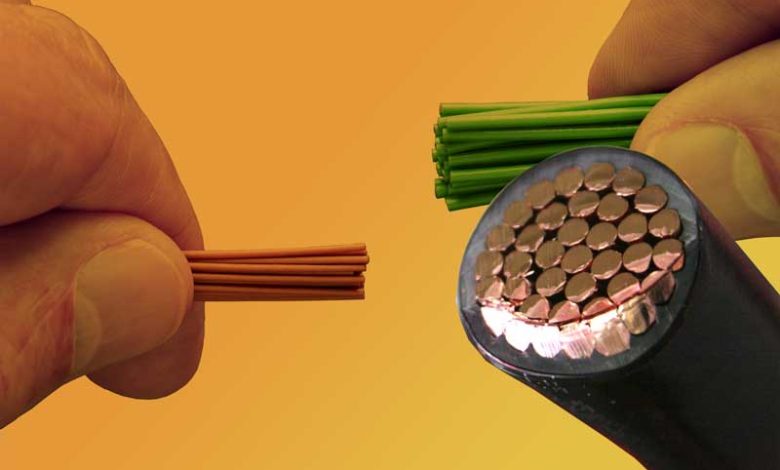
When it comes to setting up a subwoofer system, choosing the right gauge speaker wire is crucial for optimum performance. Speaker wire gauge refers to the thickness of the wire, and it plays a significant role in delivering quality audio to your subwoofer.
The average gauge size for a subwoofer can vary depending on the specific model and brand. However, a common gauge size for most subwoofers is 12 gauge. This gauge size is suitable for delivering optimal power and sound quality to enhance the bass performance in a car audio system.
In this article, we will discuss the importance of speaker wire gauge, how it affects sound quality, and provide guidelines on determining the right gauge wire for your subwoofer setup.
What is Speaker Wire Gauge?
Before diving into the specifics of speaker wire gauge for subwoofers, it’s essential to understand what speaker wire gauge is. Speaker wire gauge is a measurement of the wire’s diameter, commonly referred to as American Wire Gauge (AWG). The wire gauge number indicates the thickness of the wire, with lower numbers representing thicker wires.
The gauge of the speaker wire you choose for your subwoofer system is crucial because it determines the amount of current that can flow through the wire. If you use a wire gauge that is too thin for the power requirements of your subwoofer, it can result in voltage drops and poor sound quality. On the other hand, using a wire gauge that is too thick for your subwoofer’s needs might be unnecessary and can lead to unnecessary expenses.
The speaker wire gauge directly impacts the sound quality delivered by your subwoofer. Thicker gauge wires have lower resistance, allowing for a better flow of current and minimizing power loss. This results in improved sound reproduction in terms of clarity, detail, and dynamic range. Using the correct gauge wire ensures that your subwoofer receives the necessary power to produce accurate and impactful bass.
How to Determine the Right Gauge Speaker Wire for Subwoofers?
To determine the right gauge speaker wire for subwoofers, you need to consider a few factors. Firstly, you need to determine the power requirements of your subwoofers. Higher-powered subwoofers generally require thicker gauge wires.
Additionally, the distance between your subwoofer and the amplifier also plays a role. Longer distances may require thicker wires to minimize resistance and ensure optimal performance. Ultimately, consulting the manufacturer’s guidelines and seeking professional advice can help in determining the appropriate gauge for your subwoofers.
Calculating Wire Gauge Based on Subwoofer Power and Distance
Determining the correct gauge speaker wire for your subwoofer setup involves considering factors such as subwoofer power rating and the distance between the subwoofer and the amplifier. Higher power ratings require thicker gauge wires to minimize power loss.
The Recommended Gauge Wire Size for Various Subwoofer Power Ratings
For subwoofer power ratings up to 200 watts, a 16-gauge wire is generally sufficient. However, if your subwoofer’s power rating exceeds 200 watts, it is advisable to use a thicker gauge wire, such as a 14-gauge or even a 12-gauge wire. The longer the wire run, the more resistance it introduces, so ensure to use an appropriate gauge to compensate for the distance.
Consideration Factors When Choosing Speaker Wire Gauge
Aside from power requirements, there are other factors to consider when selecting the appropriate speaker wire gauge for your subwoofer. These include the ohms rating of your subwoofer, the impedance match between the amplifier and the subwoofer, and the desired sound quality. It is always recommended to consult the manufacturer’s guidelines to determine the ideal speaker wire gauge for your specific subwoofer model.
Common Mistakes to Avoid in Choosing Speaker Wire Gauge
When choosing speaker wire gauge, there are some common mistakes to avoid. One mistake is using a wire that is too thin for the power requirements of your speakers, which can lead to a reduction in sound quality.
Another mistake is using a wire that is too thick, which can be wasteful and unnecessary. It is important to do proper research and understand the power requirements of your speakers before choosing the correct gauge.
Relying on Thicker Gauge Wire Always for Better Performance
One common mistake many people make is assuming that using thicker gauge wire will always result in better performance. While it is true that thicker gauge wires have lower resistance and less power loss, using excessively thick wires for low-power subwoofer systems can be overkill and wasteful.
Using Thinner Gauge Wire for Long Wire Runs
Another common mistake is using thinner gauge wire for long wire runs. As the distance between the amplifier and subwoofer increases, the resistance also increases. This can lead to power loss and degradation in sound quality. To avoid this, it is important to choose a thicker gauge wire for longer wire runs.
Importance of Pure Copper Wire for Better Signal Transmission
Pure copper wire is highly recommended for subwoofer setups due to its superior conductivity compared to other materials like aluminum or copper-clad aluminum wire. Pure copper wire ensures efficient signal transmission, resulting in better overall audio quality. It is worth investing in high-quality pure copper wire to maximize the performance of your subwoofer system.
Proper Installation and Connection of Subwoofer Speaker Wire
When installing a subwoofer, it is important to properly connect and install the speaker wire. Choose the appropriate gauge wire for the power output of the subwoofer and ensure a solid connection.
Use high-quality connectors and secure the wire to prevent any loose connections or interference. Proper installation and connection of the subwoofer speaker wire will ensure optimal performance and sound quality.
Understanding Different Speaker Wire Connectors and Their Usage
When installing and connecting your subwoofer speaker wire, it is essential to be familiar with different connectors and their usage. Common speaker wire connectors include banana plugs, spade connectors, and bare wire connections. Each connector type has its advantages and is used in specific audio systems and setups.
Connecting Speaker Wire to the Amplifier and Subwoofer
Properly connecting the speaker wire to the amplifier and subwoofer is crucial for achieving optimal performance. Ensure a secure and tight connection by stripping the wire insulation, twisting the exposed wire strands, and securely fastening them to the respective terminals on the amplifier and subwoofer. Loose connections can result in poor sound quality or even damage the equipment.
Securing and Organizing Speaker Wire in the Audio System Setup
To ensure a clean and organized audio system setup, it is essential to secure and organize the speaker wire properly. Use cable clips or cable ties to keep the wires in place and prevent them from tangling. This not only improves the aesthetics but also prevents potential hazards due to loose wires.
Other Considerations for Subwoofer Wiring
When wiring a subwoofer, there are other factors to consider besides just the gauge and length of wire. It is important to use high-quality connection terminals to ensure a secure and reliable connection.
Additionally, the placement of the subwoofer within the room can affect the overall sound quality, so it is important to experiment with different locations for optimal bass response. Lastly, properly grounding the subwoofer can help eliminate any potential noise interference.
Matching Impedance Between Amplifier and Subwoofer
When wiring a subwoofer, it is crucial to match the impedance between the amplifier and the subwoofer. Connecting an amplifier with a lower or higher impedance than the subwoofer can result in distorted sound or even damage the equipment. Ensure to check the specifications of both the amplifier and subwoofer and connect them accordingly.
Benefits of Using High-Quality Speaker Cables
Investing in high-quality speaker cables can greatly enhance the performance of your subwoofer system. High-quality cables minimize signal loss and interference, resulting in improved sound quality. Look for cables with features such as oxygen-free copper conductors and braided shielding for optimal performance.
Choosing the Right Length of Speaker Wire for Subwoofer Setup
When it comes to selecting the length of speaker wire for your subwoofer setup, it is advisable to measure and cut the wire to the appropriate length. Avoid using excessive lengths of wire as this can introduce unnecessary resistance and potentially degrade the sound quality. Use wire length calculators or consult with professionals to determine the optimal length based on your specific setup.




